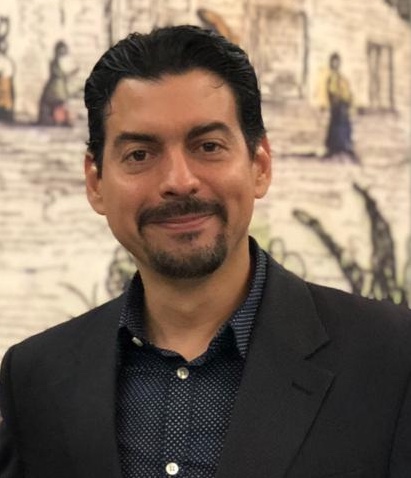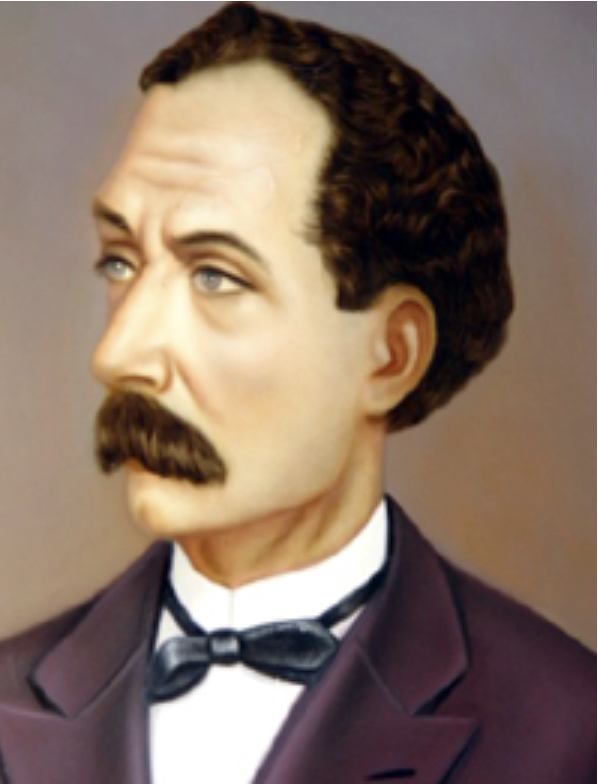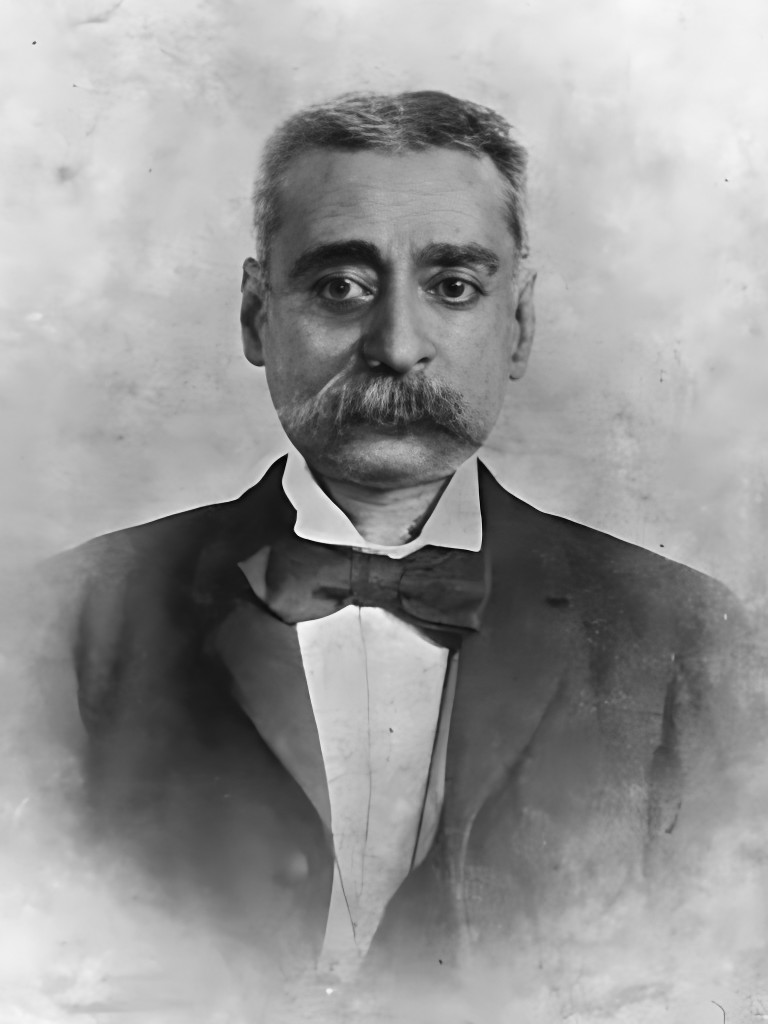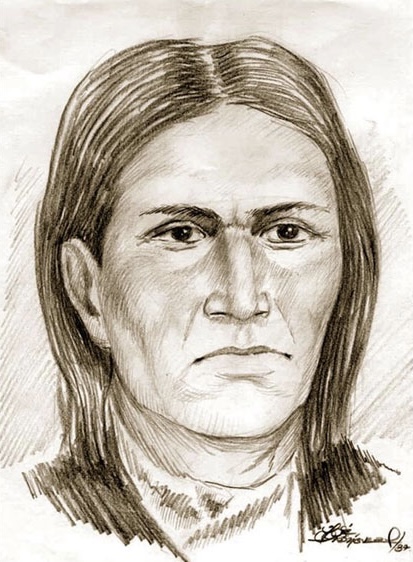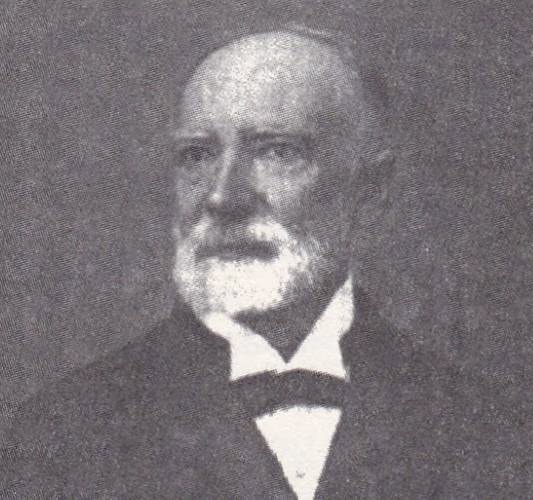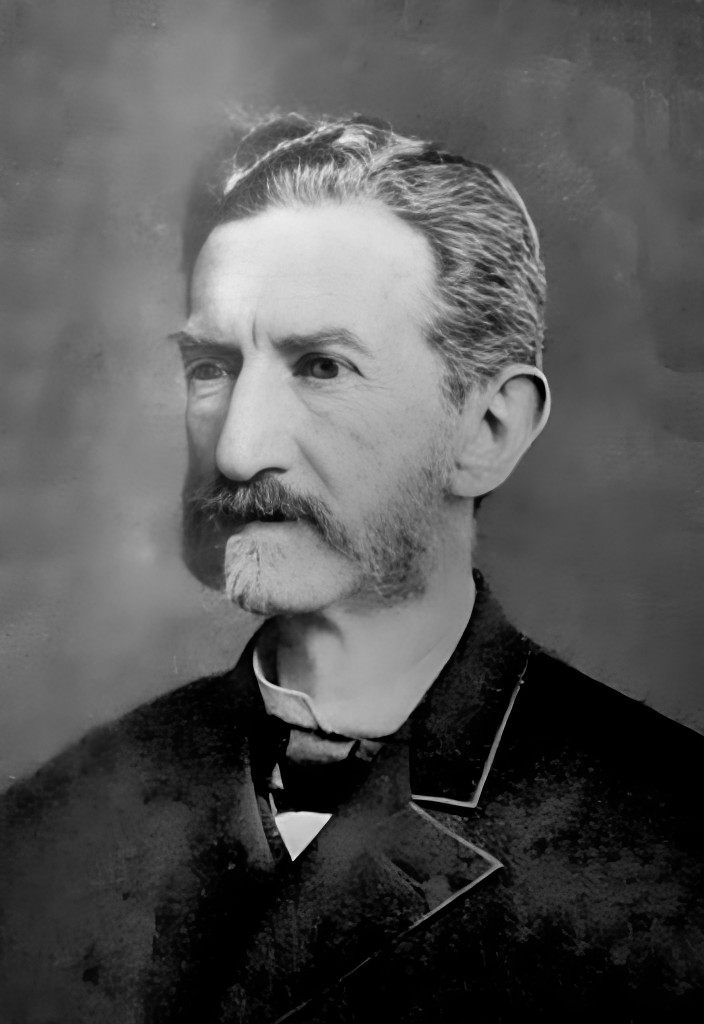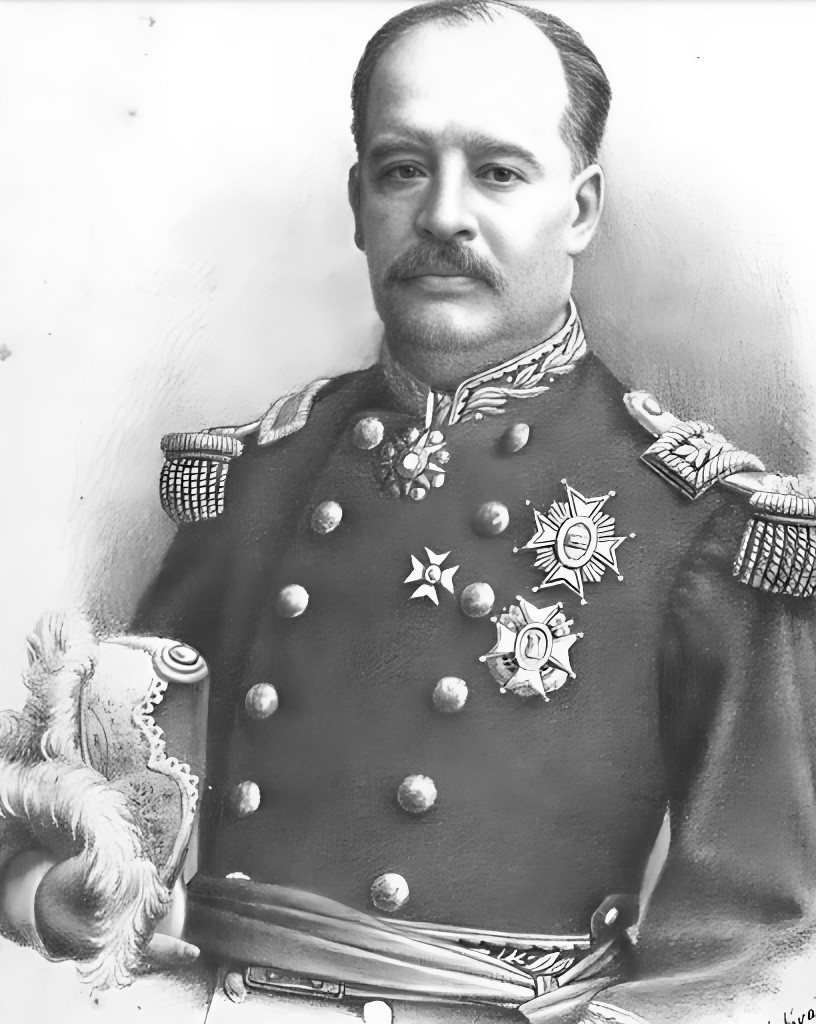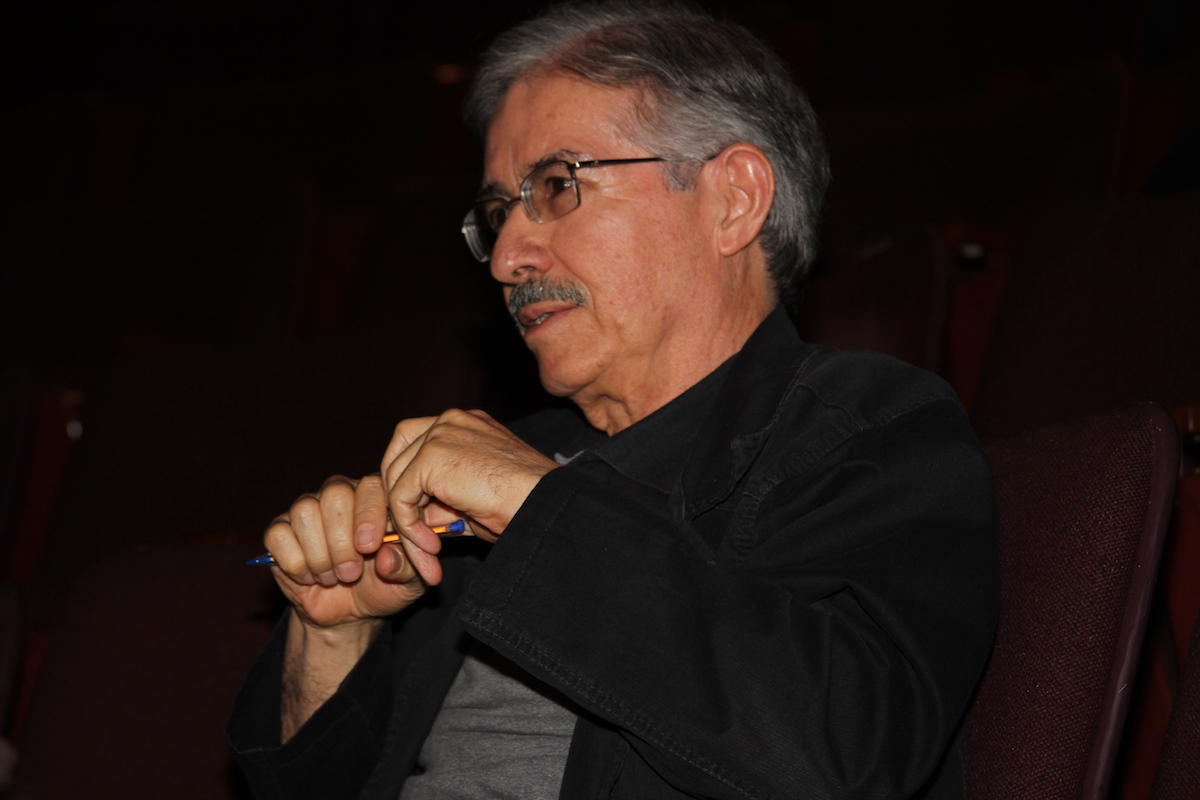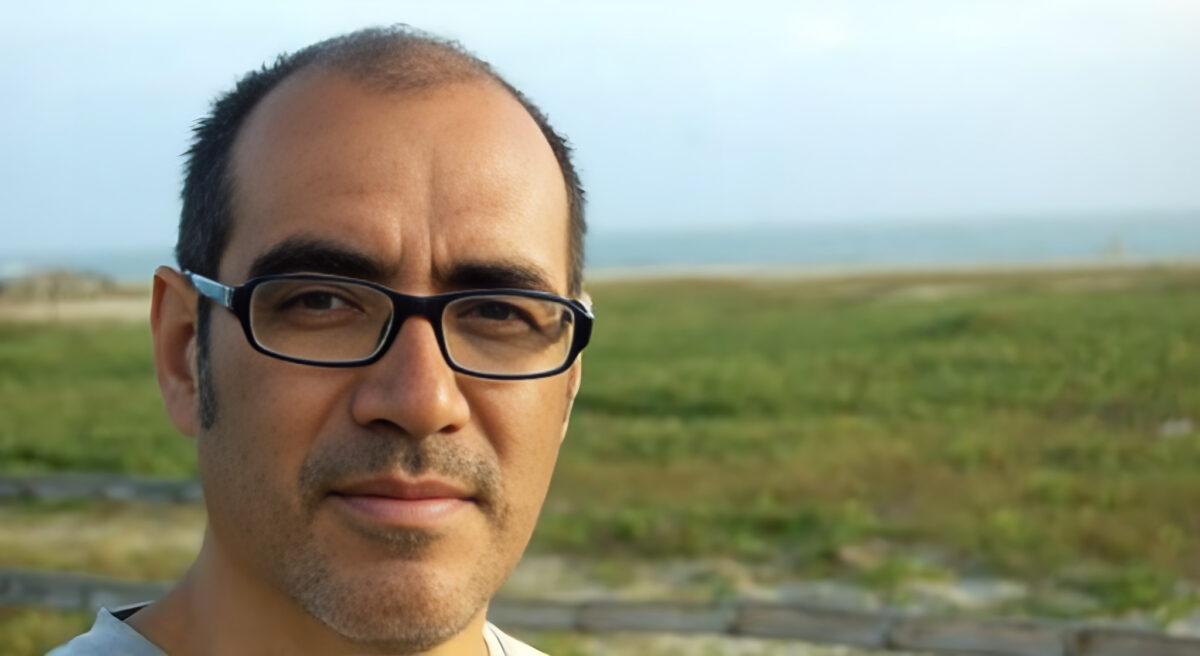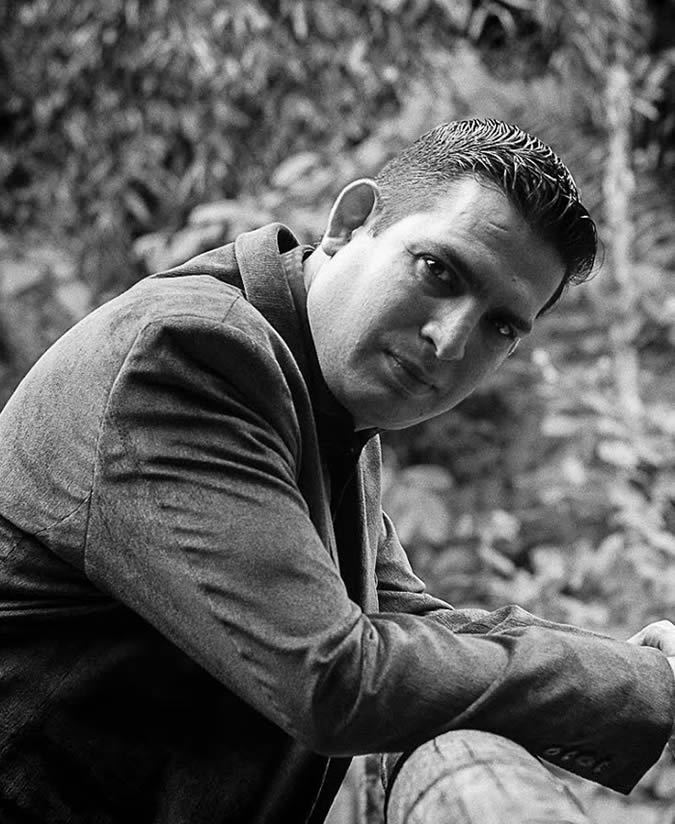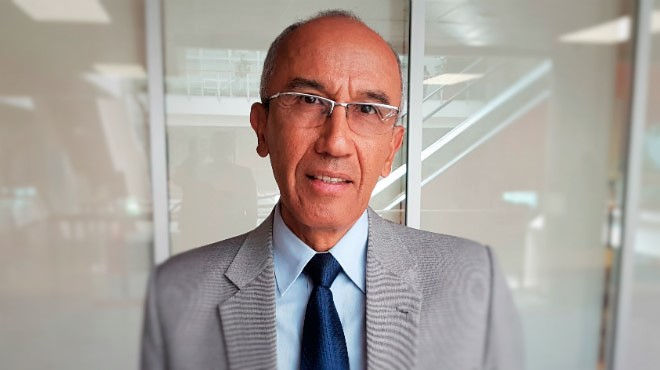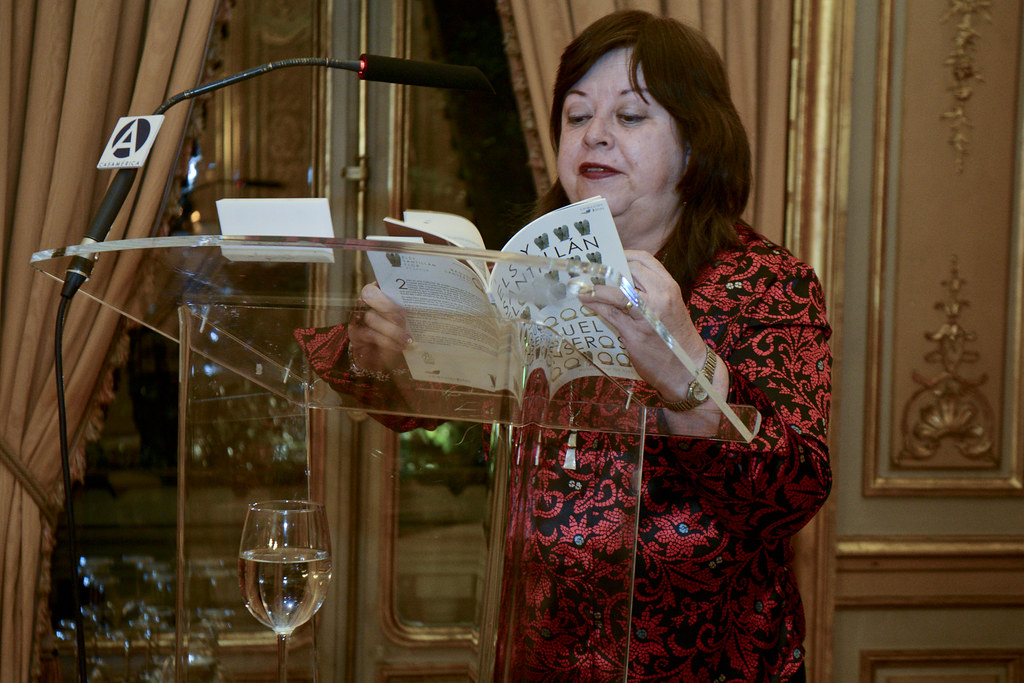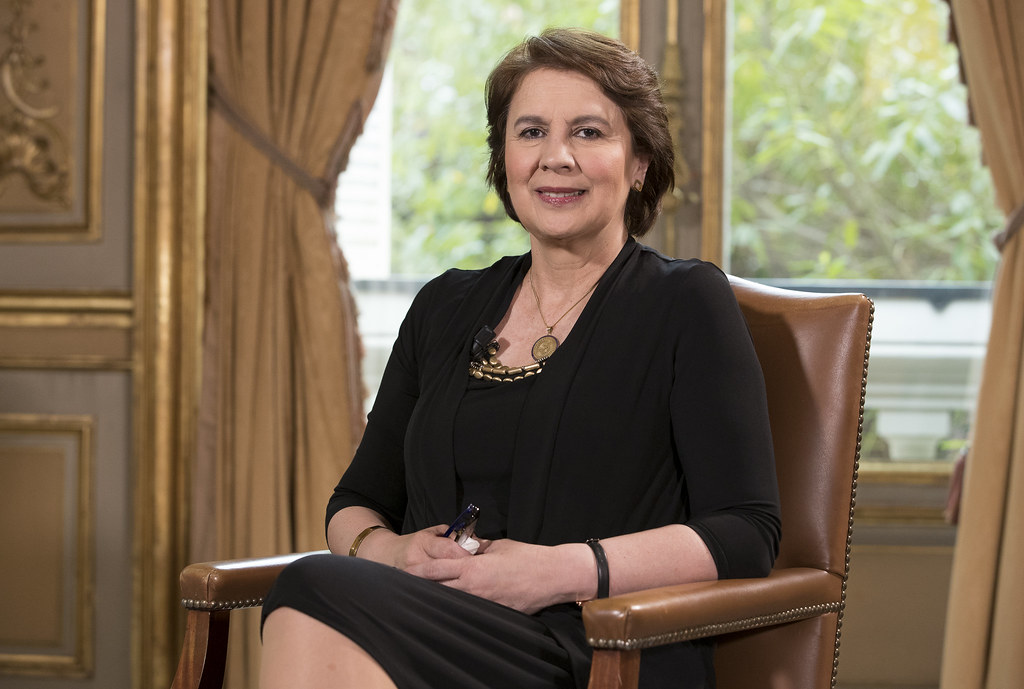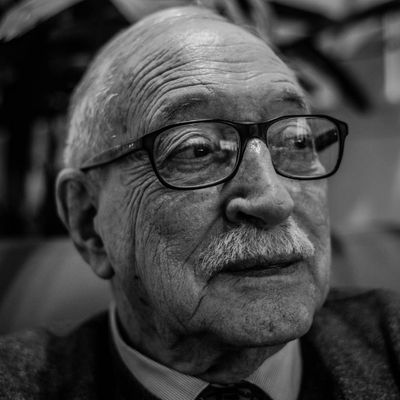Eduardo León Rodríguez (Guayaquil, 1977) is an Ecuadorian poet and author of children’s literature. His poetry collections include: “Censurado” (2018) and “Manzana para mi boca” (2019), both of which were published by El Ángel Editor. His poems have also been included in several anthologies. His first children’s book was “Luz Emilia, un cuento de la infancia.” His latest children’s book is “Ofelia y las cabras mágicas.”
Continue reading “Eduardo León”Month: September 2022
Miguel Riofrío
Miguel Riofrío Sánchez (Loja, Ecuador, September 7, 1822 – Lima, Peru, October 11, 1879) was an Ecuadorian poet, novelist, journalist, orator, educator, lawyer, and politician. He is best known today as the author of “La Emancipada,” Ecuador’s first novel, which was published in installments in the newspaper La Unión in 1863. Many experts however argue that because the book is usually less than 100 pages long in print, it is really a novella rather than a novel, and that Ecuador’s first novel is in fact “Cumanda” (1879) by Juan León Mera. Nonetheless, Miguel Riofro’s “La Emancipada” has been accepted as Ecuador’s first novel, thanks to the arguments of the well-known and respected Ecuadorian writer Alejandro Carrión (1915-1992).
Continue reading “Miguel Riofrío”Manuel Gallegos Naranjo
Manuel Gallegos Naranjo (Guayaquil, March 26, 1845 – Ibídem , 1917) was a prominent Ecuadorian chronicler, novelist, and poet during the late nineteenth and early twentieth centuries. In 1871, he founded the magazine Espejo, which provoked the ire of President Gabriel García Moreno, leading to Gallegos Naranjo’s exile to Chile. Upon his return to Ecuador, he supported General Ignacio de Veintimilla and established the newspaper Ocho de Septiembre, receiving a government salary. He eventually relocated to Quito. In 1878, he began publishing his initial works as a writer. Subsequently, he released a critical loose leaf targeting Juan León Mera, a supporter of García Moreno. Gallegos Naranjo contributed to the newspaper La Nación in his hometown and served as the editor of Diario Los Andes. In 1883, he published “El Almanaque Ecuatoriano” [The Ecuadorian Almanac] a comprehensive reference containing valuable information across its extensive 300-page content. In 1895, he suffered from thrombosis, leaving him wheelchair-bound. Gallegos Naranjo’s work “Celebridades Malditas” is a historical novel that delves into the lives of infamous characters from old Guayaquil who became entangled in criminal activities due to their ill-fated choices. This novel has been reprinted by the Editorial of the Municipal Library of Guayaquil. Additionally, six of his unpublished works are preserved in the Carlos Alberto Rolando National Authors Library in Guayaquil.
Continue reading “Manuel Gallegos Naranjo”Jacinto Collahuazo
Jacinto Collahuazo (Otavalo, 1665 – 17??) was a cacique (indigenous political leader) from Otavalo, Ecuador. He was a poet and historian who was imprisoned by the Spanish for having written a book in Quechua related to the war between Huáscar and Atahualpa titled, “History of the civil wars of Atahualpa and his brother Atoco, known commonly as Huascar Inca.” His work was burned publicly by the Magistrate of Ibarra and he was sentenced to jail, where he spent his last days. He is considered the first Ecuadorian indigenous chronicler. He lived past 80 but his exact date of death is unknown.
Continue reading “Jacinto Collahuazo”Belisario Peña
Belisario Peña Gómez (Zipaquirá, Colombia, August 5, 1834 – September 7, 1906) was a Colombian poet and educator in Ecuador. At the request of Miguel Riofrio, Ecuador’s Charge d’Affaires, he moved to Ecuador to help found a school with Riofro, Benjamn Pereira Gamba and Francisco Ortiz Barrera. The school, “Colegio de la Unión,” opened on July 20, 1857 at the Santo Domingo de Loja temple. At the beginning of 1860, the Provisional Government of Quito called on Peña and Barrera to found the Colegio de la Unión in Ecuador’s capital. The new Colegio de la Unión opened its doors in Quito on March 2, 1861. Then President García Moreno ordered the merger of the Colegio de la Unión of Quito with the “Nacional” recently created for the Jesuits, who renamed the combined school “San Gabriel.” In 1875 he was a founding member of the Ecuadorian Academy of Language. In 1889 he and Carlos Casares resigned from the Ecuadorian Academy of Language due to the political dispute between the conservatives led by José Modesto Espinosa, against the progressives. In 1912 his friend the Archbishop of Quito, Federico González Suárez, compiled his poems and published them in a volume entitled “Composiciones poéticas del Sr. Don Belisario Peña” [Poetic compositions of Mr. Don Belisario Peña] in 334 pages. preceded by a prologue by González in 62 pages. In 1932 Manuel María Pólit published 11 more poems, minor but not unworthy; among them a translation of Manzoni entitled “El día de la Primera Comunión.” An additional 16 poems are compiled in the Library of the Jesuits of Cotocollao, one of them of great interest, in honor of General Tomás Cipriano de Mosquera. Belisario Peña’s biography was written and published in Colombia by scholar Roberto M. Tisnés J. CMF.
Continue reading “Belisario Peña “José Modesto Espinosa
José Modesto Espinosa y Espinosa de los Monteros (Quito, December 2, 1833 – December 21, 1915) was an Ecuadorian writer, politician, and founding member of the Ecuadorian Academy of Language. He held several important posts during General José María Urbina’s rule, including State Councilor and Senator for Tungurahua province. He was persecuted for his critical articles against General Ignacio de Veintemilla and served as Minister of the Interior and Foreign Affairs during the Progressive era of Ecuador’s history. He held other ministerial positions and was elected President of the Supreme Court of Justice in 1894. However, after being accused of being a right-wing conspirator by General Eloy Alfaro in 1896, he was exiled from Ecuador. He returned to Quito in 1901 and was elected Senator for the Pichincha province in 1902.
Continue reading “José Modesto Espinosa”General Francisco Javier Salazar
General Francisco Javier Salazar Arboleda (Quito, January 11, 1824 – Guayaquil, September 21, 1891) was an Ecuadorian lawyer, writer, militarist, and politician. He wrote several works of a military, didactic and educational nature, including: “Método de Enseñanza Primaria,” “Pronunciación del Castellano en el Ecuador,” and “Instrucción de Esgrima a la Bayoneta,” to name a few. He was a founding member of the Ecuadorian Academy of Language, as well as a member of the National Scientific and Literary Academy of Quito, the Royal Society of London, the Lima Athenaeum, the Academy of History of Madrid, and the Seville Royal Academy of Literature, among others.
Continue reading “General Francisco Javier Salazar”Santiago Rivadeneira Aguirre
Santiago Rivadeneira Aguirre (Quito) is an Ecuadorian writer, editor, theater critic, and university professor. From 1973-2000, he was the coordinator of the Theater School at the School of Fine Arts of the Central University of Ecuador. He was a member of the editorial board of the magazine Eskeletra and of the writer’s workshop La Pequeñalulupa. Among his best-known books are: “De cantos y huellas” (1976), “Las venturas de la abuela rota” (1995), and “Los sonidos del pensar en el teatro y la danza” (2017). He has taught literature, philosophy, theater, and cinema at universities.
Continue reading “Santiago Rivadeneira Aguirre”Alfredo Noriega
Afredo Noriega Fernández (Quito, 1962) is an Ecuadorian writer, novelist, short story writer, and playwright. In the early 1980’s he was a member of the writing workshop of Miguel Donoso Pareja and founded the group La Pequeñalulupa. In 1985, he moved to Paris, France where he studied linguistics at the Sorbonne Nouvelle. He lived in Paris and Brussels for many years and now lives in Cardiff, United Kingdom. He has worked as a Spanish professor at universities. He is a highly-acclaimed author of noir novels. Some of his best-known work includes the 2002 novel “De que nada se sabe,” (translated into French as C’est dur de mourir au printemps), its 2010 sequel “Tan solo morir” (translated as Mourir, la belle affaire), and the trilogy’s final book, the 2019 novel “Eso si nunca.” The first book of this trilogy, “De que nada se sabe,” was adapted into the 2008 film “Cuando me toque a mí,” directed by Víctor Arregui, who collaborated with Noriega on the screenplay. He has published novels, short story collections, poetry collections, and plays. His stories have been included in several national and international anthologies.
Continue reading “Alfredo Noriega”Carlos Coello García
Carlos Coello García (Manta, 1983) is an Ecuadorian lawyer, writer, and poet. He lives in the city of Santa Ana in the Manabi province. He has published three poetry collections: “La inspiración de un fantasma” (2002) “La creación perfecta” (2009) and “El origen del mal y otros poemas” (2017). His novel, “Leyendas de un fauno” (2018), is the first book in a fantasy trilogy. His latest book, “Oculto” (2022) is a horror novel. Some of his poems and stories have been published in newspapers in his province and digital blogs.
Continue reading “Carlos Coello García”Rafael Lugo
Rafael Lugo Naranjo (Quito, 1972) is an Ecuadorian writer and lawyer. He is a litigator in the courts and tribunals of Ecuador and the author of a book of short stories, five novels, two books of chronicles and many articles published in different media. Among his best-known works are the novels in the trilogy Trilogía de Quito, which include: Veinte (2008), 7 (2012) and 207 (2017). Critics have also praised his most recent novels Tripa mistic (2019) and Tripa mistic II (2022).
Continue reading “Rafael Lugo”Pedro Isaac Barreiro
Pedro Isaac Barreiro Chancay (Santa Ana, Manabi, July 3, 1949) is an Ecuadorian medical doctor, public health specialist, writer, novelist, short story writer, and poet. Passionate about writing and the proper use of the Spanish language, he ventured into the world of literature from a very young age (essays, short stories, poetry and novels) with notable success, and has several publications to his credit. His notable poetry collections include, “De Regreso” (1990), and “Los Versos Prohibidos” (2008). His prose includes a genre that he calls “miniatures,” compiled in books that have been very well received by critics, such as: “Tarqui 707” (1995), “Mamita Galud” (2002), or “El Tendón de Aquiles” (2009). In 2013, he published his first novel ”El Escritor,” an exciting journey through the human psyche. He is a member of the Ecuadorian House of Culture and the Ecuadorian Corporation of Medical Writers, an organization that is part of the World Union of Medical Writers.
Continue reading “Pedro Isaac Barreiro”Elsy Santillán Flor
Elsy Santillán Flor (Quito, December 23, 1957) is an Ecuadorian poet, fiction writer, playwright, and author of children’s literature. She’s also a lawyer by profession and has worked in Ecuador’s courts. From 1999-2002 she was secretary of Ecuadorian Society of Writers (SEDE). She was the recipient of the Jorge Luis Borges National Prize and the Pablo Palacio Prize. One of her plays received honorable mention at the Joaquín Gallegos Lara Prize in 2011. The majority of her short fiction was collected in “Los miedos juntos” (2009). In 2021, she published her latest work, a horror novel titled “Fantasmagórica aventura del grupo 21” [The Phantasmagorical Adventure of Group 21]. Some of her works have been translated into Hungarian and French.
Continue reading “Elsy Santillán Flor “Rosalía Arteaga
Rosalía Arteaga, born Lupe Rosalía Arteaga Serrano (Cuenca, December 5, 1956) is an Ecuadorian social activist, writer, and politician. She served as president of Ecuador between February 6-11, 1997. She was the first woman constitutional president and vice president of Ecuador. She co-authored the book “Alto Cenepa: los frentes de una guerra,” (1995) and wrote the book “La Presidenta, el secuestro de una propuesta” (1997). Her best known book is “Jerónimo,” which has gone through 8 editions in Spanish, 2 in English, and 1 in Chinese, Braille, Portuguese, Italian and a bilingual edition in Spanish/Portuguese. A continuation, “Los otros Jerónimos,” was published in 2002, with a prologue by the Spanish writer Rosa Montero. She has also written children and youth literature. She currently lives in Quito, Ecuador.
Continue reading “Rosalía Arteaga”Simón Espinosa Cordero
Simón Espinosa Cordero (Cuenca, October 8, 1920) is an Ecuadorian writer, journalist, editor, and university professor. He became a member of the Ecuadorian Academy of Language in 2013. He has a PhD from the Pontifical Catholic University of Ecuador. He has authored over one hundred essays, prologues and nearly three thousand opinion columns, his books include “Comunicación, ética y paz social” (1990, co-author), “Presidentes del Ecuador 1830-2000” (2002), “Grandes escritores de la patria” (2004) and “Los más bellos cuentos del poeta” (2011, co-author). In 2014 he published his latest book, “Vine, vi, linché,” a collection of 124 opinion columns he wrote between 1982 and 2012.
Continue reading “Simón Espinosa Cordero”
